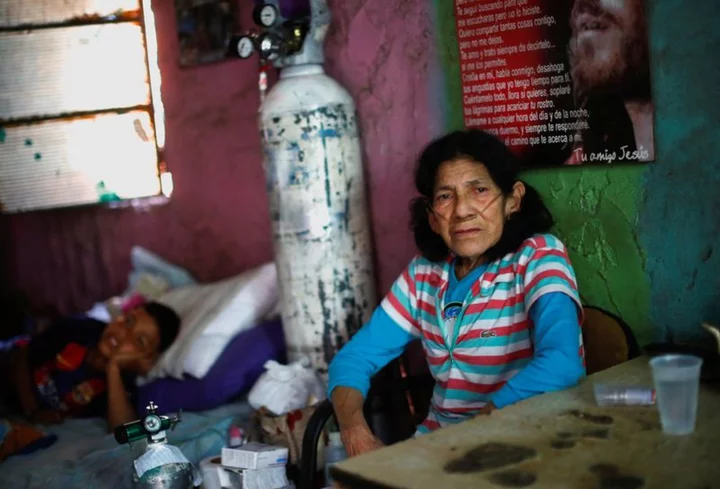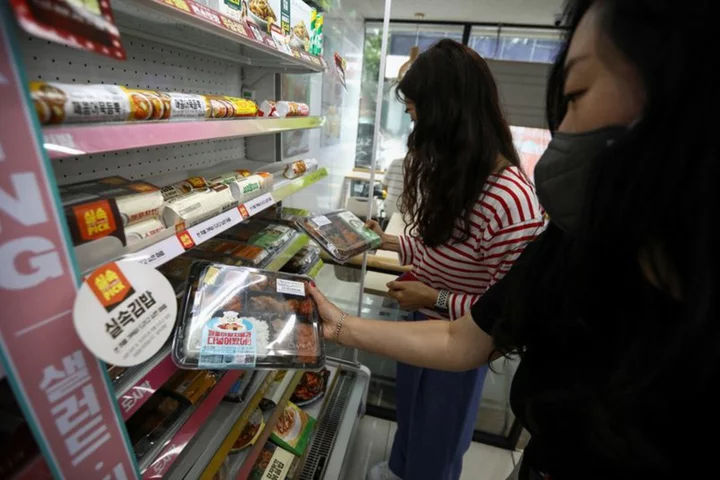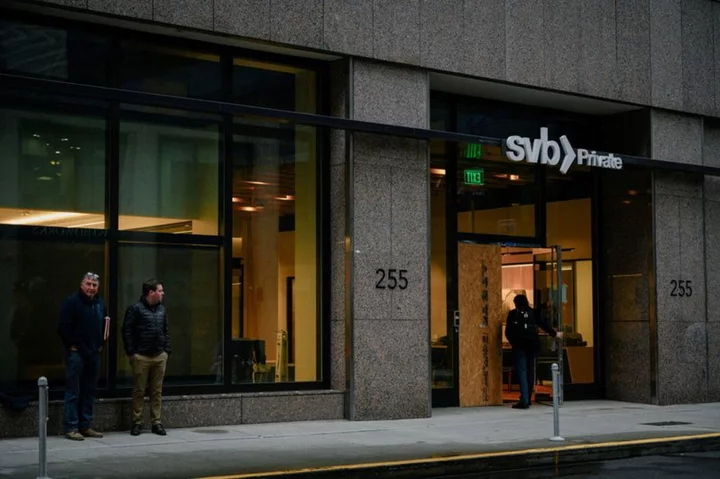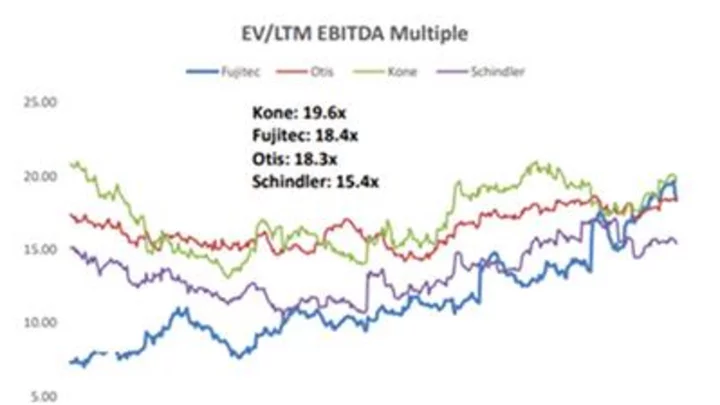By Anna-Catherine Brigida
BUENOS AIRES Simona Alegre, a 65-year-old widow, used to earn enough from her government pension to feed her six grandkids. But now Argentina's worst economic crisis in decades means the whole family is hungry, and it's making her rethink her vote for the leftist Peronists in Oct. 22 elections.
"Now look at how things are," said Alegre, a lifelong Peronist voter. "Before I cashed my pension and the kids could eat a yoghurt, a rice pudding. Now, nothing."
Alegre and her neighbors in the Buenos Aires suburb of Villa Fiorito mostly work as trash-pickers, outside the formal labor market. Such work brings in about 40,000 pesos a month, or less than $40 at the current parallel exchange rate, according to community leader Mirta Jimenez.
This working-class neighborhood – the birthplace of soccer legend Diego Maradona - has traditionally been a stronghold for the ruling Peronist party, which has built one of the most extensive social welfare systems in Latin America.
But many of its residents are now questioning if the Peronists remain their best option for the future - and whether it might not be time to give the burn-it-all-down radical ideas of Javier Milei a go.
Presidential frontrunner Milei has singled out rampant government spending as a leading factor in high inflation, now at 124%, which has eroded the income of Argentines from every social class. His promise to dollarize the economy and close down the central bank has resonated with many voters who want a reprieve.
Pastor Leonardo Alvarez, who runs an NGO in Villa Fiorito, said that many neighborhood residents had told him they will cast their ballots for Milei, but won't say so publicly because of fear of local retaliation.
"People are going to vote for Milei and they don't want to say it because they think there may be consequences – losing their welfare, not being able to go to a soup kitchen, or losing all the resources that the government gives them," he said. In a visit to Villa Fiorito on Oct. 9, no Milei voter wanted to provide an on-record interview to Reuters.
Milei's main rivals for the presidency are Peronist Economy Minister Sergio Massa and conservative former security minister Patricia Bullrich.
The 40% of Argentines living in poverty face a difficult decision: stick with the traditional parties that have overseen an economic downward spiral in the last decade, or opt for change and risk an economic dose of painful medicine.
Some Argentines living in poverty question whether Milei's plans to cut social programs would make them hungrier and poorer. Nonetheless, in August's open primary Milei won the most votes in many of the most destitute neighborhoods in and surrounding capital Buenos Aires where the Peronists previously dominated.
"People don't realize that Milei promises one good thing and wants to take away five," said community leader Jimenez.
Jimenez cautioned that Milei's proposed cuts to government aid would leave residents with even less to eat, since the government has implemented programs to feed children at school and provide food staples to the poorest families.
The lifelong Villa Fiorito resident said she would vote for Massa, although she was critical of some of the current government's policies.
Milei supporters argue that his policies will help people out of poverty and provide an alternative to welfare handouts.
"I live in a neighborhood that is more or less poor, and I know that there are people who depend on these social plans," said Ayrton Ortiz, 28, at a Milei rally in September. "So if you take them away, you are going to have more poor people in the streets, and obviously we don't want that."
Whoever wins in October faces a tall order, said Fernando Morra, former vice minister of economy for the current government. The next administration will need to "gain enough political capital to put in place a process of stabilization," he said, adding: "I wouldn't dare to tell you that things can't get worse."
For Alegre, living with a lung condition that requires her to be hooked up to an oxygen tank, government assistance and food handouts from local NGOs are crucial, since she can no longer make the journey into the city to scavenge. But she has not yet made up her mind on who to vote for.
"I was a Peronist my whole life, and I thank them," said Alegre.
"But unfortunately, instead of moving forward the country is moving backwards. We are all on the ship, and when this sinks, we're all going down."
(Reporting by Anna-Catherine Brigida; additional reporting by Eliana Raszewski; Editing by Rosalba O'Brien)









